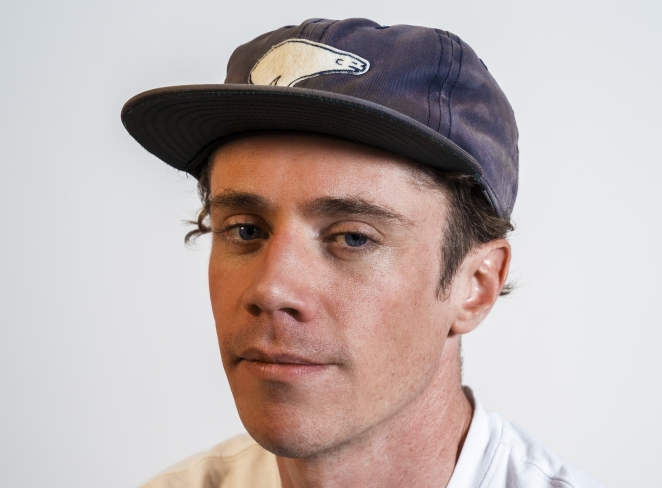Sustainability is a contract, no one party is responsible. It’s a collaboration, a cooperative space, an industrial-commons.
Truly sustainable brands and events might be a utopian future but right now the challenge is teaching all brands new tricks, and that responsibility often sits squarely with the agency.
But, an industry problem requires an industry solution. Simples. Right?
Sustainability isn’t a new activation you can brief in 2 weeks out from the event. It’s a commitment written into the fabric of a brief, derived from the soul of the brand.
Everyone’s talking about Gen A, Gen Z and Young Millennials, not forgetting the forgotten generation, but this brand story is ubiquitous across demographics. As we grow up, so do our collective value systems. All of us are calling out green-washing, lambasting duplicity and harpooning brand insensitivities.
If, in one sector, we are collectively rejecting fast fashion and sweat shop processes in a quest for equality and inclusion, is a brands holistic approach to sustainability not next? Are live events a space yet to be sweated? Or is product sustainability different to operational sustainability?
Data summarising 2023 consumer behaviours released by The Round Up found ‘84% of customers say that poor environmental practices will alienate them from a brand or company’. This is backed up by the knowing ‘55% of consumers are willing to pay more for eco-friendly brands’, therefore a holistic approach to sustainability and purposeful brand storytelling is essential.
In my experience, event-sustainability is most often a reactive project request and at most, a paper promise in the brief. I’ve received briefs citing sustainability as a key brand value, briefs that have asked for sustainable practices only to reject these same requirements when the cost of responsible materials, recyclable print and eco-shipping are reconciled against the more traditional (and polluting) alternatives.
Like in any great brand X agency partnership, consistent and open collaboration is the key to creating exceptional or, in this case, sustainable live experiences. All too often, sustainability is not a recognised cost of production for the brand. As a result, the true value of event sustainability is frequently overlooked.
The way we challenge sustainability in events collaboratively is for brands to:
- Plan for sustainable events from the brief, not reacting mid-project
- Be willing to pay for sustainable events, understanding budget impact
- Promote sustainable events and maximise efforts on social channels to drive brand love
Unless brands find a way to turn sustainability at their events into a customer benefit there will always be (and understandably so) other shiny things to spend the not so sizeable budget on. Does sustainability ever really come into project KPIs anyway? Whilst sustainable planning within events comes at a cost, there are also benefits when this is done right.
We, like most agencies, are constantly trying to find ways to be more sustainable. We are not perfect by any means, but one successful example I will shamelessly discuss was a project we worked on earlier this year, where sustainability was a main communication pillar of the product we were launching.
Tasked with aligning our event to the brand and product’s sustainable values, this quickly became an event metric resulting in a consistently strong attention to materiality and end-of-life design. This was supported via our relationship with isla, the event specific carbon tracking tool, enabling a circular event strategy to ensure responsibility. Our approach included:
- Utilisation of ethical B-Matrix walls
- Hiring in all tech
- Hiring in all plants and foliage - any that we couldn’t hire, we purchased and donated post event
- Encouraging guests to take public transport, with VIP guests chauffeured in electric vehicles
- Working with our catering suppliers who provided locally sourced food and beverages and avoided single-use plastics. Any unconsumed food was donated to a local foodbank post event
- Giving production materials a second life by donating them to eco-conscious initiatives including Work and Play Scrapstore
Selling sustainable products through a sustainable project is a no brainer – it becomes a lot harder when the product or communication is not focused on planetary-responsibility.
Another win from the agency can be supplier relationships. This is how we at Seen Presents are tackling our own conscience by exploring and cementing new relationships, at times auditing supplier practices and making sustainable processes a key aspect of onboarding.
So, are brand experiences sustainable? For the most part, no. Sometimes there is an anomaly but these are few and far between, I think all event professionals will agree with this (or not in the comments section!). For this to become a collective yes, I believe our industry needs to unite to change what we all know is not responsible or sustainable.
This is a big ask. To make it easier I suggest the guardrails should not be ours to define.
The only real way to change a societal scale problem is with a societal sized solution - therefore, expecting the brand or the agency individually (or an organised collection of both) to drive event sustainability across the industry is short sighted (anyone remember the idea that FB could self-regulate?!). Instead, legislation should drive innovation in this space.
Industry standards need to change for events to become sustainable and these should be defined at a societal level, imposed on our industry through staged implementation to trigger meaningful change, not lip service. After all, why choose recyclable when single-use is cheaper? Why plan for end-of-life when the skip is quicker?
With the general election taking place this week, I suggest there is an easy way to solve the question of event industry sustainability. After all, there is nothing like imposed necessity to drive purposeful innovation.

By Jonathan Bates, Creative Director @ Seen Presents







